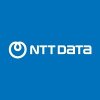Soc Analyst 1
70+ Soc Analyst 1 Interview Questions and Answers

Asked in HCLTech

Q. What is AAA in Cyber security? Difference between Authentication vs Authorization
AAA in cybersecurity stands for Authentication, Authorization, and Accounting, crucial for securing systems.
Authentication verifies user identity (e.g., passwords, biometrics).
Authorization determines user permissions (e.g., access to files).
Accounting tracks user activities (e.g., logging access times).
Example: A user logs in (Authentication), accesses a file (Authorization), and their actions are logged (Accounting).

Asked in Orange Business

Q. A customer is experiencing a total outage that will not be resolved within the SLA. How would you communicate this to them?
Communicate transparently and empathetically about the outage, providing updates and support to the customer.
Acknowledge the issue: Start by confirming the outage and expressing understanding of the customer's frustration.
Provide clear information: Explain the cause of the outage and the steps being taken to resolve it.
Set realistic expectations: Inform the customer about the estimated time for resolution, even if it exceeds the SLA.
Offer alternatives: Suggest any temporary s...read more
Soc Analyst 1 Interview Questions and Answers for Freshers
Asked in Mjolnir Security

Q. What is the process for sending logs from a firewall to the Wazuh Manager?
Sending logs from a firewall to Wazuh Manager involves configuring the firewall, setting up Wazuh, and ensuring proper communication.
1. Configure the firewall to send logs: Set the logging level and specify the log format (e.g., syslog).
2. Set up Wazuh Manager: Ensure Wazuh is installed and running on a server that can receive logs.
3. Use the Wazuh agent: Install the Wazuh agent on the firewall or a server that can receive logs from the firewall.
4. Configure log forwarding: I...read more

Asked in Unitrans Infotech Services

Q. What is the purpose of a SOC (Security Operations Center) role?
A SOC role focuses on monitoring, detecting, and responding to security incidents to protect an organization's information assets.
Continuous monitoring of networks and systems for suspicious activities.
Incident detection and response, such as analyzing alerts from security tools.
Threat intelligence gathering to stay updated on emerging threats.
Collaboration with other IT and security teams to enhance overall security posture.
Conducting post-incident analysis to improve future...read more

Asked in TCS

Q. What is a false positive and false negative in security monitoring?
False positives and negatives are errors in security monitoring that affect threat detection accuracy.
A false positive occurs when a benign event is incorrectly flagged as a threat. Example: An employee's legitimate login is flagged as suspicious.
A false negative happens when a real threat goes undetected. Example: Malware on a system is not identified by the security software.
False positives can lead to alert fatigue, causing analysts to overlook real threats.
False negatives...read more
Asked in Mjolnir Security

Q. What is the purpose of using a Security Information and Event Management (SIEM) system?
SIEM systems aggregate and analyze security data to enhance threat detection and incident response.
Centralizes security data from various sources like firewalls, servers, and applications.
Provides real-time monitoring and alerts for suspicious activities.
Facilitates compliance reporting by collecting logs and security events.
Enables forensic analysis by storing historical data for investigations.
Example: Detecting a potential data breach by correlating logs from multiple syst...read more
Soc Analyst 1 Jobs



Asked in Mjolnir Security

Q. What is the role of a Security Operations Center (SOC) Analyst?
A SOC Analyst monitors, detects, and responds to security incidents to protect an organization's information systems.
Monitor security alerts and logs for suspicious activities.
Analyze security incidents to determine their impact and origin.
Coordinate incident response efforts to mitigate threats.
Utilize tools like SIEM (Security Information and Event Management) for real-time analysis.
Conduct threat hunting to proactively identify vulnerabilities.
Asked in Zybisys Consulting Services

Q. Do you understand how to escalate critical security incidents to higher-level analysts?
Yes, I understand the process of escalating critical security incidents to ensure timely resolution and proper handling.
Identify the severity of the incident based on predefined criteria.
Document all relevant details, including timestamps, affected systems, and potential impact.
Notify the appropriate higher-level analysts or incident response teams immediately.
Use established communication channels, such as ticketing systems or direct alerts, to escalate.
Provide a clear summa...read more
Share interview questions and help millions of jobseekers 🌟

Asked in Mjolnir Security

Q. What is Suricata, and how is it integrated with Wazuh?
Suricata is an open-source network threat detection engine integrated with Wazuh for enhanced security monitoring.
Suricata is a high-performance Network IDS/IPS and Network Security Monitoring engine.
It can analyze network traffic in real-time and detect various types of attacks.
Wazuh is a security information and event management (SIEM) tool that provides log analysis and threat detection.
Integration allows Wazuh to collect and analyze Suricata alerts for better visibility i...read more
Asked in Zybisys Consulting Services

Q. What is your understanding of Security Operations Centers (SOC)?
A Security Operations Center (SOC) monitors, detects, and responds to cybersecurity threats in real-time.
SOC teams consist of security analysts and engineers who monitor security systems.
They utilize tools like SIEM (Security Information and Event Management) for threat detection.
SOC operates 24/7 to ensure continuous monitoring and rapid incident response.
For example, a SOC might respond to a DDoS attack by analyzing traffic patterns and mitigating the threat.

Asked in TCS

Q. What is the difference between a threat, vulnerability, and risk?
Threats exploit vulnerabilities, leading to risks that can impact an organization's assets and operations.
A threat is a potential danger that could exploit a vulnerability, such as a hacker attempting to breach a system.
A vulnerability is a weakness in a system that can be exploited, like outdated software or unpatched security flaws.
Risk is the potential impact of a threat exploiting a vulnerability, often measured in terms of likelihood and consequence.
Example: A threat cou...read more

Asked in CyberProof

Q. How do you investigate an email phishing attack?
Investigating email phishing involves analyzing email headers, links, and content to identify signs of phishing.
Examine email headers to look for inconsistencies or suspicious domains
Hover over links to check the actual URL before clicking
Analyze email content for spelling errors, urgent language, or requests for personal information
Check for generic greetings or unfamiliar sender addresses

Asked in TCS

Q. what is soc analyst day to day activity?roles and responsibilities?
A SOC analyst's day-to-day activities involve monitoring and analyzing security events, investigating incidents, and responding to threats.
Monitoring security events and alerts from various sources
Analyzing and investigating potential security incidents
Responding to and mitigating security threats
Performing vulnerability assessments and penetration testing
Creating and maintaining security incident reports
Collaborating with other teams to ensure timely incident response
Staying...read more

Asked in Optiv Security India Private Limited

Q. what is cross site scripting? how does lateral movement work in attack scenario?
Cross site scripting is a type of security vulnerability that allows attackers to inject malicious scripts into web pages viewed by other users.
Cross site scripting (XSS) occurs when an attacker injects malicious scripts into web pages viewed by other users.
Lateral movement in an attack scenario involves an attacker moving horizontally across a network to gain access to different systems.
Attackers can use lateral movement techniques such as pass-the-hash, pass-the-ticket, and...read more
Asked in Aarna Technology Pune

Q. What is the difference between a firewall and an IDS?
Firewall is a network security system that monitors and controls incoming and outgoing network traffic, while IDS is a security system that monitors network traffic for suspicious activity.
Firewall acts as a barrier between internal network and external network, allowing or blocking traffic based on predefined security rules.
IDS analyzes network traffic for signs of unauthorized access or malicious activities, sending alerts when suspicious behavior is detected.
Firewall can b...read more

Asked in NTT Data

Q. How do you approach RDP connection analysis?
Approach RDP connection during analysis by examining logs, network traffic, and user activity.
Review RDP logs for any suspicious activity or unauthorized access.
Analyze network traffic for any anomalies or unusual patterns related to RDP connections.
Monitor user activity to identify any unauthorized or suspicious RDP sessions.
Consider using tools like Wireshark, Splunk, or ELK stack for in-depth analysis.
Look for failed login attempts, unusual login times, or multiple simulta...read more

Asked in Rackspace

Q. What is the difference between IDS and IPS?
IDS monitors network traffic for suspicious activity, while IPS actively blocks threats in real-time.
IDS (Intrusion Detection System) is a passive system that alerts administrators about potential threats.
IPS (Intrusion Prevention System) is an active system that not only detects but also prevents threats by blocking them.
Example of IDS: Snort, which analyzes traffic and generates alerts based on predefined rules.
Example of IPS: Cisco Firepower, which can block malicious traf...read more

Asked in TCS

Q. What is phishing? How can it be detected?
Phishing is a cyber attack that tricks individuals into revealing sensitive information via deceptive emails or websites.
Phishing often involves emails that appear to be from legitimate sources, like banks or popular services.
Look for poor grammar or spelling errors in emails, which can indicate a phishing attempt.
Hover over links to see the actual URL before clicking; phishing links often lead to fake websites.
Be cautious of urgent requests for personal information, as they ...read more
Asked in Qatar Computer Services

Q. Best practice of cyber security
Implementing multi-layered defense mechanisms, regular security updates, employee training, and incident response planning are key cyber security best practices.
Implement multi-layered defense mechanisms to protect against various types of cyber threats
Regularly update security systems and software to patch vulnerabilities
Provide ongoing training for employees on cyber security best practices and how to recognize and respond to threats
Develop and regularly test an incident re...read more
Asked in Atech Cloud

Q. Policies incorporated by companies in Phishing attack
Companies incorporate policies to prevent phishing attacks by educating employees, implementing email filters, conducting phishing simulations, and enforcing strong password policies.
Educating employees on how to recognize phishing emails and what to do if they suspect an attack
Implementing email filters to detect and block phishing emails before they reach employees' inboxes
Conducting regular phishing simulations to test employees' awareness and response to phishing attacks
E...read more
Asked in Wydur

Q. How did you respond to a potential malware alert?
I promptly investigated the alert, analyzed the potential threat, and took necessary containment actions to mitigate risks.
Received an alert from the SIEM indicating unusual file activity on a workstation.
Conducted an initial investigation using endpoint detection tools to identify the nature of the alert.
Isolated the affected machine from the network to prevent potential spread of malware.
Analyzed logs and ran malware scans to determine if any malicious files were present.
Co...read more

Asked in Happiest Minds Technologies

Q. Describe the console overview of the SIEM tool.
The SIEM console provides a centralized interface for monitoring, analyzing, and responding to security events and incidents.
Dashboard: Displays real-time security metrics and alerts.
Log Management: Collects and organizes logs from various sources like firewalls and servers.
Incident Response: Allows analysts to investigate and respond to security incidents.
Correlation Rules: Analyzes data to identify patterns indicative of threats.
Reporting: Generates compliance and security ...read more

Asked in Nagarro

Q. What is the event ID for a successful login?
Event ID 4624 is for successful login in Windows Security Event Log.
Event ID 4624 is logged in the Windows Security Event Log when a user successfully logs on to a computer.
This event is commonly used by security analysts to track user activity and identify potential security incidents.
The event includes information such as the account name, account domain, logon type, and logon process.
For example, in a Windows environment, you can search for Event ID 4624 in the Security Ev...read more
Asked in Innspark Solutions

Q. How can you bypass a brute force attack?
Implementing security measures can effectively mitigate brute force attacks on systems.
Use account lockout policies: Temporarily lock accounts after a set number of failed login attempts.
Implement CAPTCHA: Introduce CAPTCHA challenges after several failed attempts to distinguish between humans and bots.
Utilize multi-factor authentication (MFA): Require additional verification methods beyond just passwords.
Limit login attempts: Restrict the number of login attempts from a sing...read more
Asked in Zybisys Consulting Services

Q. Are you familiar with ISO certification?
ISO certification ensures organizations meet international standards for quality, safety, and efficiency.
ISO 9001 focuses on quality management systems, ensuring consistent product quality.
ISO 27001 is crucial for information security management, protecting sensitive data.
ISO 14001 addresses environmental management, helping organizations reduce their ecological footprint.
ISO certifications can enhance customer trust and improve operational efficiency.

Asked in Indian Space Research Organisation

Q. What is a firewall and how does it work?
A firewall is a security device that monitors and controls incoming and outgoing network traffic based on predetermined security rules.
Firewalls can be hardware-based, software-based, or a combination of both.
They filter traffic based on IP addresses, protocols, and ports.
Example: A firewall can block traffic from a known malicious IP address.
Firewalls can operate at different layers of the OSI model, such as network or application layer.
They can also provide features like VP...read more

Asked in LA Technologies

Q. At what layer does a router operate in the OSI model?
Router works at the network layer (Layer 3) in the OSI model.
Routers operate at the network layer (Layer 3) of the OSI model.
They use IP addresses to forward packets between different networks.
Routers make decisions based on routing tables to determine the best path for data transmission.
Examples of routers include Cisco routers, Juniper routers, and home Wi-Fi routers.
Asked in Innspark Solutions

Q. How can web application security be bypassed?
Bypassing web application security involves exploiting vulnerabilities to gain unauthorized access or manipulate data.
SQL Injection: Manipulating SQL queries to access or modify database information.
Cross-Site Scripting (XSS): Injecting malicious scripts into web pages viewed by users.
Cross-Site Request Forgery (CSRF): Forcing a user to execute unwanted actions on a web application where they're authenticated.
Session Hijacking: Stealing session tokens to impersonate a user.
Di...read more

Asked in Wipro

Q. What are your strengths and weaknesses?
Positives include strong analytical skills and attention to detail. Negatives may include lack of experience or difficulty working in a team.
Positives: strong analytical skills, attention to detail, ability to work independently
Negatives: lack of experience, difficulty working in a team, limited knowledge of specific tools or technologies
Asked in Qatar Computer Services

Q. Recent known attack analysis
Analysis of recent known cyber attacks
Analyze recent cyber attacks to identify patterns and trends
Look for common attack vectors and techniques used
Assess the impact of the attacks on organizations and individuals
Evaluate the effectiveness of existing security measures in mitigating the attacks
Interview Questions of Similar Designations
Interview Experiences of Popular Companies








Reviews
Interviews
Salaries
Users
















